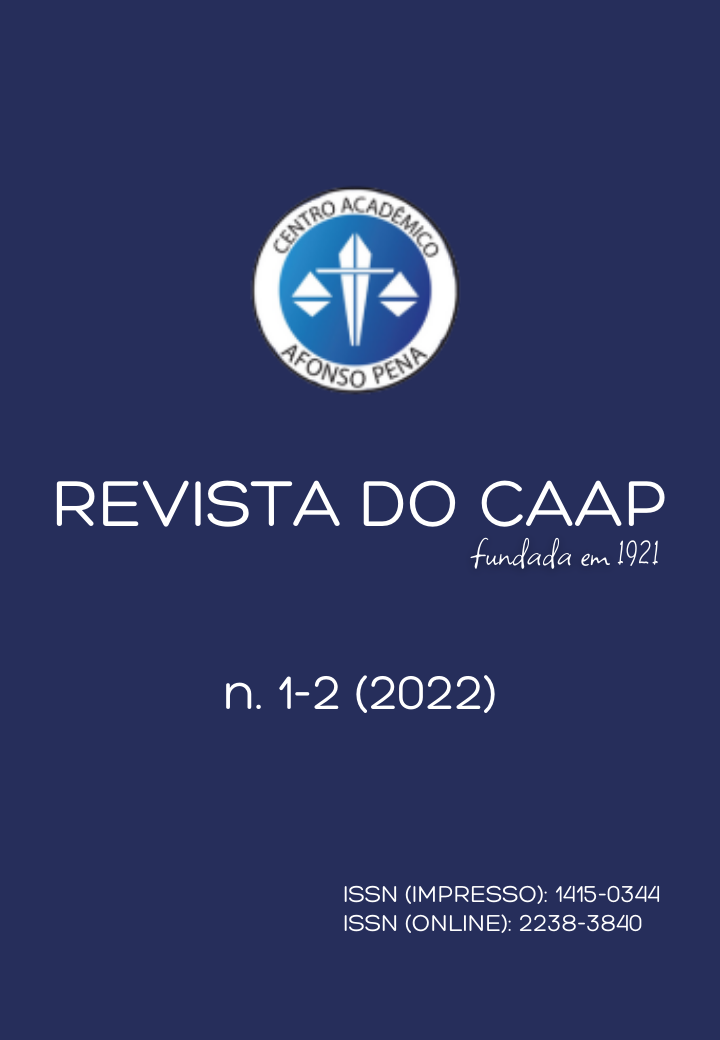The tax war and the unconstitutionality of the disallowance of ICMS credits resulting from operations in cases of granting fiscal benefits without authorization from CONFAZ
DOI:
https://doi.org/10.69881/rcaap.v27i1-2.46992Abstract
Taxwar is a serious obstacle to the implementation of the 1988 constitutional project, insofar as it prevents the Brazilian State from organizing its federal entities in harmony. The materialization of this “deformative” dispute in the tax disallowance is even more disastrous, insofar as it starts from a supposedly illegal act (tax incentives not approved by CONFAZ) that is mitigated by a reaction that is also materially illegal and indirectly unconstitutional (challenge of the credit highlighted in the invoice by the state receiving the goods). Thus, this distorting process makes the supposedly illegal act practiced by the state supplying the goods fall on the final taxpayer, which violates the rule of non-cumulative ICMS and the constitutional right to the tax credit, which can only be changed by the constitution itself.Downloads
References
BALEEIRO, Aliomar; DERZI, Misabel Abreu Machado. Direito tributário brasileiro. 14. ed., rev. atual. e ampl. Rio de Janeiro: Forense, 2018.
BASTOS, Celso Ribeiro. Curso de Direito Financeiro e de Direito Tributário.São Paulo: Saraiva, 2002.
CAMARGO, Guilherme Bueno de. A guerra fiscal e seus efeitos: autonomia x centralização.In: CONTI, José Maurício. (Org.). Federalismo Fiscal. São Paulo: Manole, 2004.
CARRAZZA, Roque Antonio. ICMS. São Paulo: Malheiros, 2006.
CARVALHO, Paulo de Barros. Direito Tributário – fundamentos jurídicos da incidência. São Paulo: Saraiva, 2006.
___________. Curso de Direito Tributário.30. ed. São Paulo: Saraiva, 2019.
GRASSIOTTO, André Pacini. Guerra Fiscal e Glosa de Créditos Tributários: panorama sobre o conflito fiscal do ICMS no Brasil. INSPER, 2018.
JORGE, Plínio Augusto Lemos; Não-Cumulatividade no ICMS. Tese (Mestrado em Direito) -Pontifícia Universidade Católica de São Paulo; São Paulo; p.135. 2009.
MARTINS, Ives Gandra da Silva. Direito a compensação do ICMS incidente sobre combustíveis e insumos nas operações de transporte mesmo quando realizadas mediante subcontratação. RDDT 151, abril/2008.
MELO, José Eduardo Soares. ICMS –fato gerador –local da ocorrência. Incentivos fiscais e créditos.In: ROCHA, Valdir de Oliveira. Grandes questões atuais do Direito Tributário. São Paulo: Dialética, 2007.
TOMÉ, Fabiana Del Padre. A jurisprudência do STF sobre guerra fiscal.In: MARTINS, Ives Gandra da Silva; ELALI, André; PEIXOTO, Marcelo Magalhães (Coord.). Incentivos fiscais: questões pontuais nas esferas federal, estadual e municipal. São Paulo: MP, 2007.
VOGAS, Rosíris Paula Cerizze. Limites constitucionais à glosa de créditos de ICMS em um cenário de guerra fiscal. 2010. Dissertação (Pós-Graduação em Direito) -Faculdade Milton Campos, Nova Lima, 2010.
Published
How to Cite
Issue
Section
License
Copyright (c) 2023 Revista do Centro Acadêmico Afonso Pena

This work is licensed under a Creative Commons Attribution 4.0 International License.


